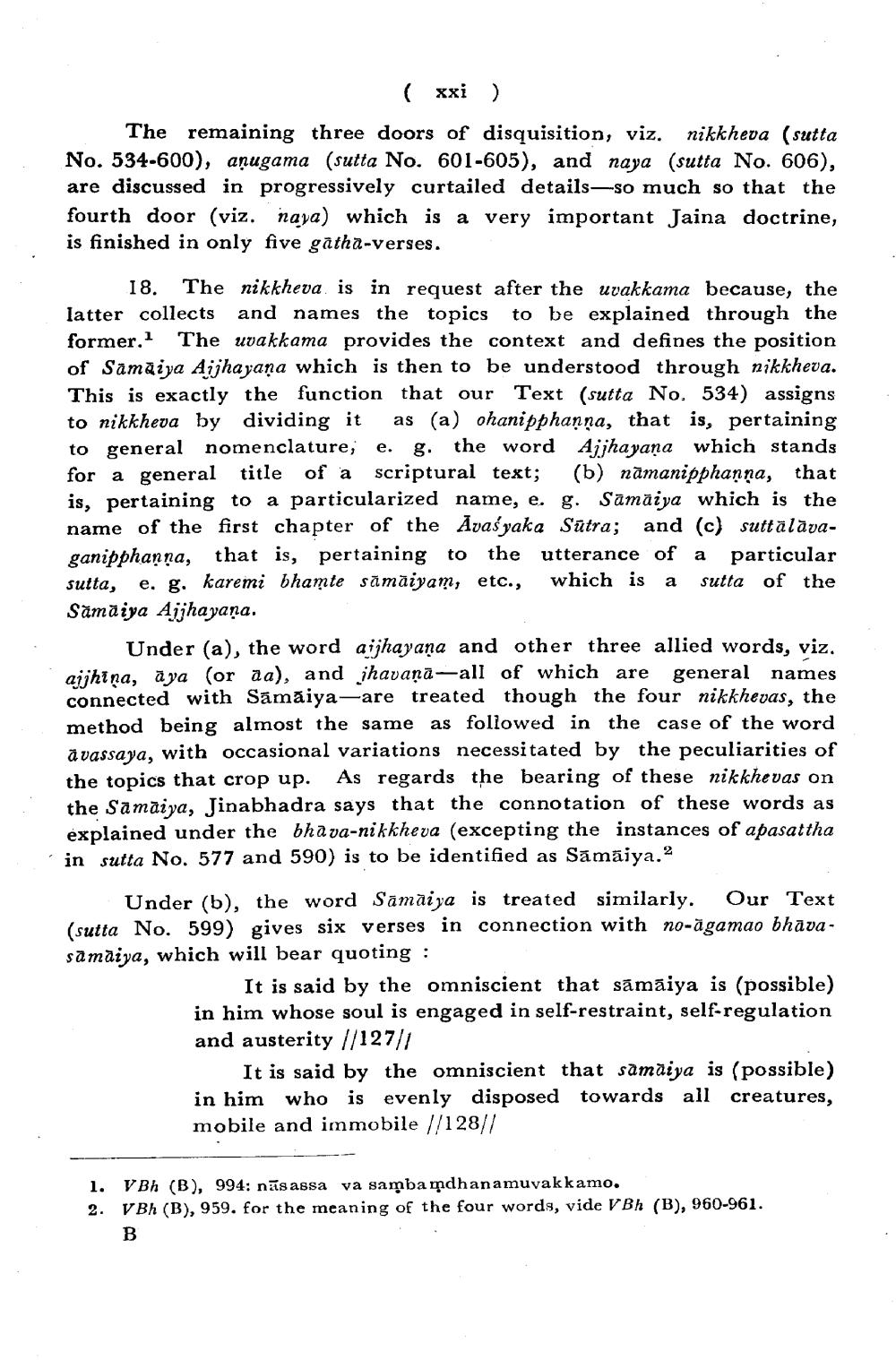________________
( xxi )
The remaining three doors of disquisition, viz. nikkheva (sutta No. 534-600), anugama (sutta No. 601-605), and naya (sutta No. 606), are discussed in progressively curtailed details-so much so that the fourth door (viz. naya) which is a very important Jaina doctrine, is finished in only five gatha-verses.
18. The nikkheva is in request after the uvakkama because, the latter collects and names the topics to be explained through the former.1 The uvakkama provides the context and defines the position of Samaiya Ajjhayana which is then to be understood through nikkheva. This is exactly the function that our Text (sutta No. 534) assigns to nikkheva by dividing it as (a) ohanipphanna, that is, pertaining to general nomenclature, e. g. the word Ajjhayana which stands for a general title of a scriptural text; (b) nămanipphanna, that is, pertaining to a particularized name, e. g. Samaiya which is the name of the first chapter of the Avasyaka Sutra; and (c) sutta lavaganipphanna, that is, pertaining to the utterance of a particular sutta, e. g. karemi bhamte sămaiyam, etc., which is a sutta of the Samaiya Ajjhayana.
are
Under (a), the word aijhayana and other three allied words, viz. ajjhina, aya (or aa), and jhavana-all of which general names connected with Samaiya-are treated though the four nikkhevas, the method being almost the same as followed in the case of the word avassaya, with occasional variations necessitated by the peculiarities of the topics that crop up. As regards the bearing of these nikkhevas on the Samaiya, Jinabhadra says that the connotation of these words as explained under the bhava-nikkheva (excepting the instances of apasattha in sutta No. 577 and 590) is to be identified as Samaiya.2
Under (b), the word Samaiya is treated similarly. Our Text (sutta No. 599) gives six verses in connection with no-agamao bhavasamaiya, which will bear quoting :
1.
2.
It is said by the omniscient that samãiya is (possible) in him whose soul is engaged in self-restraint, self-regulation and austerity //127//
It is said by the omniscient that samaiya is (possible) in him who is evenly disposed towards all creatures, mobile and immobile //128//
VBh (B), 994: nasassa va sambandhanamuvakkamo.
VBh (B), 959. for the meaning of the four words, vide VBh (B), 960-961. B




